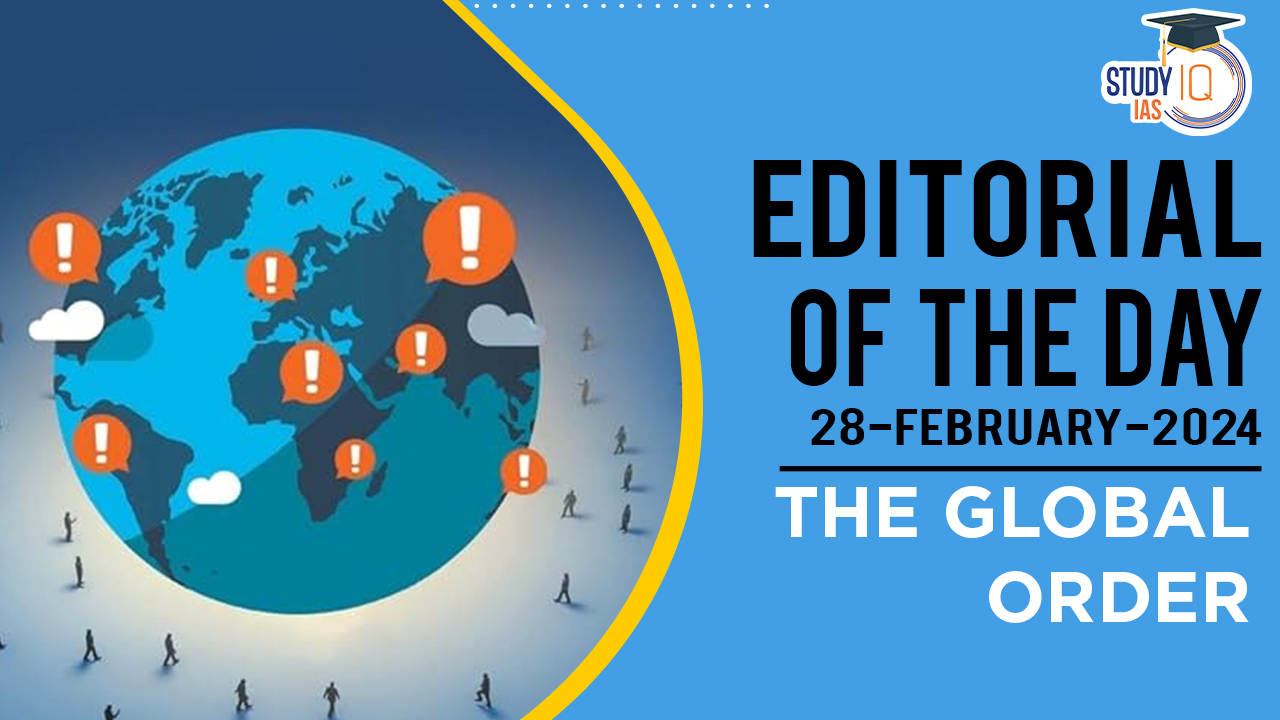Table of Contents
Context: The UN, established post-WWII to prevent global conflicts and manage power rivalries, faces challenges adapting to modern geopolitics.
The Changing Global Landscape
- Historical Foundation of the UN System: The United Nations was established during World War II, with 26 Allied nations signing the Declaration of the United Nations in 1942, endorsing the Atlantic Charter to prevent future global conflicts.
- The system aimed to manage great power rivalry, with the UN and its agencies serving as the core of post-World War international relations.
- Evolution and Shifts in Power: Over the decades, power and prosperity dynamics shifted, expanding the international community and altering the balance of global governance.
- Initially dominated by the Allied powers, including colonial empires, the UN system has faced challenges adapting to decolonization, the end of the Cold War, and the emergence of new global powers.
Structural Inequalities in Global Institutions
- Security Council and Permanent Members: The UN Security Council, with its five permanent members (P5), embodies unequal power structures, granting veto power to the major Allies and reflecting early 20th-century power dynamics.
- Bretton Woods Institutions and IMF Governance: The International Monetary Fund (IMF) and the World Bank, established at Bretton Woods in 1944, created an economic order favouring the US and Western Europe, with governance structures that reflect outdated global power distributions.
Attempts at Global Reconfiguration
- Rise of New Powers: Emerging economies and former colonies sought to challenge the existing order through groupings like the Non-Aligned Movement and the G-77, though with limited success due to internal disparities.
- Alternative Institutions: Initiatives like the Asian Infrastructure Investment Bank (AIIB) by China sought to provide counterweights to the Western-dominated financial institutions but mirrored similar power dynamics within their structures.
We’re now on WhatsApp. Click to Join
Challenges to the UN-led Order
- Pandemic and Geopolitical Strains: Events like the COVID-19 pandemic and Russia’s invasion of Ukraine have strained the global order, revealing limitations in cooperation and adherence to UN principles by its own founding members.
- Regional Conflicts and Human Rights: The ongoing conflict in Gaza has further exposed the divide between developed and developing nations, questioning the commitment of powerful UN members to foundational principles like human rights.
Prospects for Change
- Ad Hoc Groupings: The proliferation of regional and issue-specific alliances (e.g., ASEAN, EU, G-7, G-20, NATO) indicates a move towards more flexible, albeit less universally binding, forms of international cooperation.
- Need for a New Global Architecture: The current challenges underscore the necessity for a reimagined global system that can better accommodate today’s diversified power landscape and address universal values beyond the interests of dominant nations.


 GPS Spoofing and Its Impact in India: A ...
GPS Spoofing and Its Impact in India: A ...
 Amrit Gyaan Kosh Portal: A Comprehensive...
Amrit Gyaan Kosh Portal: A Comprehensive...
 UpLink Initiative: Launched by World Eco...
UpLink Initiative: Launched by World Eco...





















